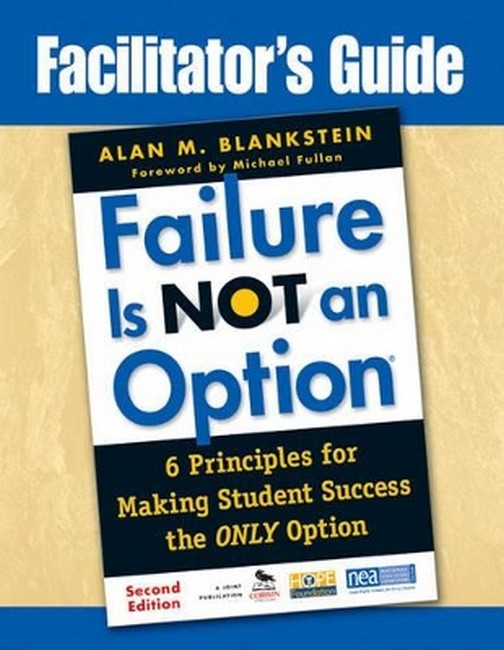Award-winning author and educational leader, Alan Blankstein served for 25 years as President of the HOPE Foundation, which he founded and whose honorary chair is Nobel Prize winner Archbishop Desmond Tutu. A former "high-risk" youth, Alan began his career in education as a music teacher. He worked for Phi Delta Kappa, March of Dimes, and Solution Tree, which he founded in 1987 and directed for 12 years while launching Professional Learning Communities beginning in the late 1980s. He is the author of the best-selling book Failure Is Not an Option (R): Six Principles That Guide Student Achievement in High-Performing Schools, which received the Book of the Year award from Learning Forward. Alan is Senior Editor, lead contributor, and/or author of 18 books, including Excellence Through Equity with Pedro Noguera,. He also authored some 20 articles in leading education print including Education Week, Educational Leadership, The Principal, and Executive Educator. Alan has provided keynote presentations and workshops for virtually every major U.S. Ed Org, and throughout the UK, Africa, and the Middle East. Alan has served on the Harvard International Principals Centers advisory board, and the Jewish Child Care Agency, where he once was a youth in residence.
Request Academic Copy
Please copy the ISBN for submitting review copy form
Description
About the Author How to Use This Chapter-by-Chapter Guide Tips to Facilitate Discussion Chapter-by-Chapter Study Guide: Failure Is Not an Option: 6 Principles for Making Student Success the ONLY Option, Second Edition by Alan M. Blankstein Chapter 1. Why Failure Is Not an Option Chapter Content Review Activities Discussion Further Reading Resources Chapter 2. Courageous Leadership for School Success Chapter Content Review Activities Discussion Further Reading Chapter 3. 10 Common Routes to Failure, and How to Avoid Each Chapter Content Review Activities Discussion Further Reading Resources Chapter 4. Relational Trust as Foundation for the Learning Community Chapter Content Review Activities Discussion Further Reading Chapter 5. Principle 1: Common Mission, Vision, Values, and Goals Chapter Content Review Activities Discussion Further Reading Resources Chapter 6. Principle 2: Ensuring Achievement for All Students?Systems for Prevention and Intervention Chapter Content Review Activities Discussion Further Reading Resources Chapter 7. Principle 3: Collaborative Teaming Focused on Teaching for Learning Chapter Content Review Activities Discussion Further Reading Resources Chapter 8. Principle 4: Data-Based Decision Making for Continuous Improvement Chapter Content Review Activities Discussion Further Reading Resources Chapter 9. Principle 5: Gaining Active Engagement From Family and Community by Alan M. Blankstein and Pedro A. Noguera Chapter Content Review Activities Discussion Further Reading Chapter 10. Principle 6: Building Sustainable Leadership Capacity by Alan M. Blankstein with Andy Hargreaves and Dean Fink Chapter Content Review Activities Discussion Further Reading Wrap Up Your Reading With Reflection Resources Resource 1. FNO Snapshot Rubric for Educational Leaders Resource 2. FNO Student-Success Model and Critical-Success Factors Resource 3. Williamston Zoomerang Survey: Tying Professional Development to Results Resource 4. FNO Tuning Protocol Resource 5. Williamston Graphic Organizer and Rubric for Writing Resource 6. Williamston Professional Development Agenda Resource 7. Strategies for Making Time Resource 8. Self-Assessment Resource 9. Strategies for Dealing With Resistance Resource 10. Running River Elementary School Mission Statement Resource 11. Development Process for Mission, Vision, Values, and Goals Resource 12. Worksheet for Developing a School Improvement Plan Resource 13. Pyramid of Support at Coyote Ridge Elementary School Resource 14. Developing a System of Prevention and Intervention Resource 15. Instructional Learning Walks Resource 16. Checklist for Using Diagnostic (Preteaching) Assessments Resource 17. Checklist for Using Formative Assessments Resource 18. Checklist for Using Summative Assessments Workshop Evaluation Form

